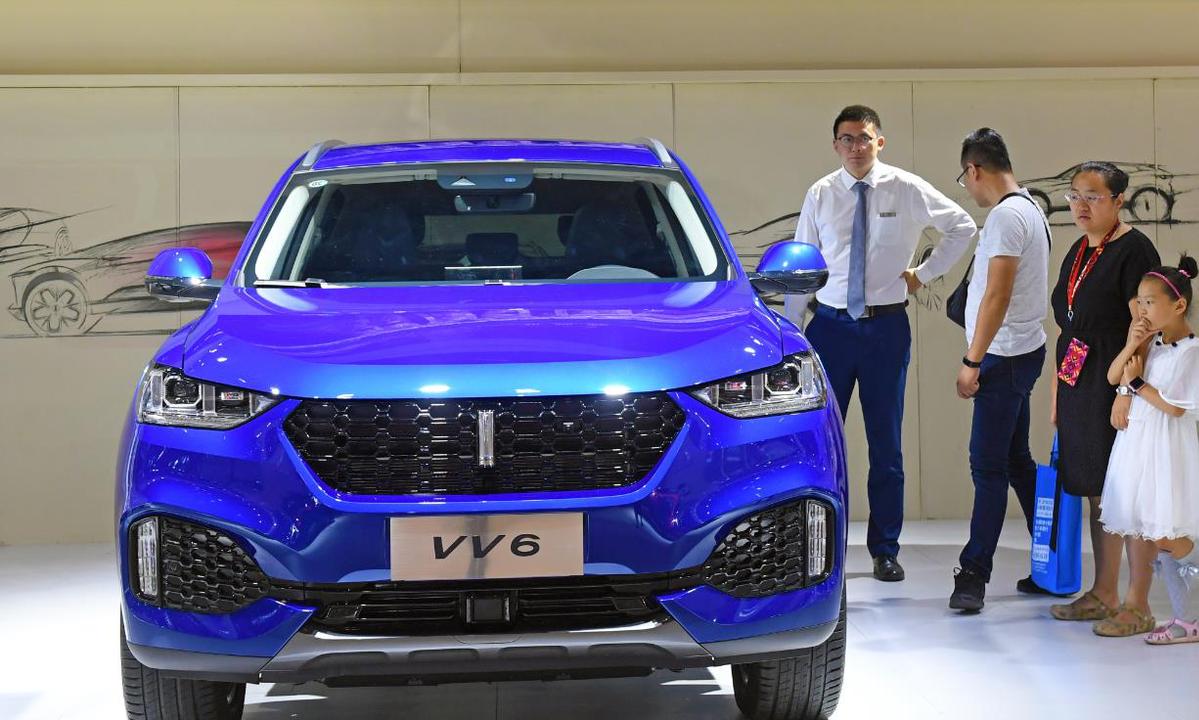CUMMINS DFSK DFM DFAC DONGFENG TRUCK PARTS DFL4251 DFL3251 5258744 DONGFENG XIAOKANG DONGFENG MINIBUS K17 5266969 5272666 5293669 5264757 5263374 5288908


CUMMINS DFSK DFM DFAC DONGFENG TRUCK PARTS DFL4251 DFL3251 5258744 DONGFENG XIAOKANG DONGFENG MINIBUS K17 5266969 5272666 5293669 5264757 5263374 5288908



A model of Great Wall Motor's upscale Wey brand is displayed at an auto show in Zhengzhou, Henan province. [Photo provided to China Daily]
Hampered by significant market share losses, Chinese auto brands are struggling to compete for customers with automakers around the globe.
The sales volume of Chinese passenger cars in April declined 27.9 percent year-on-year to 585,000 units, according to the China Association of Automobile Manufacturers.
That accounted for 37.1 percent of the total sales of China's passenger vehicles, a decrease of 5.2 percentage points.
Quoting an automotive analyst, the National Business Daily reported the decline of Chinese brands' market share is in some sense caused by their weaker product competitiveness and less market recognition compared to joint venture and luxury brands.
Changan Automobile, one of China's leading automakers, saw a sales decline of 35.1 percent year-on-year in April to 121,000 units.
From January to April, Changan sold some 570,000 units of vehicles, down 32.5 percent from the previous year.
Facing the drop in sales, the automaker in April unveiled its global research center, a 4.3 billion yuan ($622.43 million) facility in Southwest China's city of Chongqing. The research center aims to shore up its sales volume by strengthening its technology research and development.
Decline in sales volume also hampered other Chinese-branded automakers, including GAC Motor, Zhejiang Geely Holding Group, SAIC Motor, JAC Motors and Haima Automobile Group.
In April, GAC Motor sold 27,000 units of passenger cars, 40.4 percent down year-on-year. While Haima Motor sold 2,650 units, a decrease of 72.2 percent from the previous year.
Seeing a year-on-year decline in sales of 15.4 percent last month, SAIC Motor hopes to boost its sales by granting a total subsidy of 3 billion yuan to customers who buy new cars, and offering preferential incentives to its staff members.
Although most Chinese auto brands saw declines in their sales volume, some Chinese-branded automakers have had success.
BYD sold 38,000 units of cars in April, an increase of 1.3 percent year-on-year, thanks mostly to sales of new energy models.
As a leading new energy carmaker in China, BYD sold 24,000 units of new energy vehicles last month, up 72.5 percent year-over-year and accounting for 63.2 percent of its total sales volume in April.
Statistics from the China Association of Automobile Manufacturers show China produced 102,000 units of new energy vehicles and sold 97,000 new energy cars in April, with year-over-year increases of 25 percent and 18.1 percent, respectively.
The growth in the new energy vehicle market has lured a handful of auto brands to extend their business to the new energy sector.
Geely unveiled its latest brand structure at the beginning of the year, saying Geely New Energy will work as an brand in the new energy vehicle market. The company launched its Geometry A model on April 12, which had a sales of 1,017 units last month, accounting for 12.5 percent of the total volume of Geely's new energy vehicles.
JAC Motors has collaborated with its joint venture partner Volkswagen to construct a research and development center for new energy passenger vehicles. The R&D center is expected to begin operation in 2020 and have an annual production capacity of 100,000 units of full electric passenger cars.
Among the few Chinese auto brands seeing sales growth in the past several months is Great Wall Motor.
The company's growth is caused by blossoming sport utility vehicle sales, not new energy models.
In the first four months this year, Great Wall Motors sold 368,000 units, a growth of 8.7 percent year-over-year, spurred by sales of its Haval-branded SUVs.
Statistics show Great Wall Motor sold 58,000 units of Haval-branded models in April, an increase of 6.2 percent from the previous year, while the total sales volume hit by the automaker last month was 84,000 units, witnessing a year-over-year growth of 2.5 percent.
China sold 2.92 million SUVs in the first four months of 2019, accounting for 42.6 percent of the passenger car market. But as joint venture brands accelerate their pace of developing SUV models, the advantages of Chinese brands are weakening, insiders say.
Only three of the top 10 SUV models sold last month were from Chinese independent auto brands. At the same time last year, there were six Chinese-branded models in the top 10. (from China Daily)